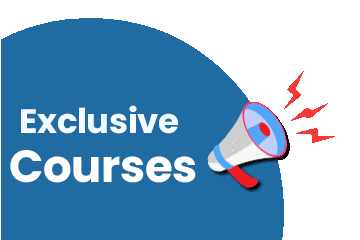
Balancing regular studies with data analytics can be difficult. A structured routine must be followed to ease the load. Time management skills are required to stay on track. Learning sessions should be scheduled during free or low-stress hours. Distractions must be avoided for better learning outcomes.
Short breaks should be taken to refresh the mind. Study materials must be organized for quick and easy access. Difficult topics can be revised using online tools. Practice should be done often to remember concepts better.
Progress should be tracked regularly for self-evaluation. Support from peers or mentors should be taken when needed. With smart planning, both areas can be managed successfully.
Check out these amazing and useful tips shared by a leading data analyst institute in Delhi -
A weekly study plan should be created and followed regularly. Fixed time slots must be assigned for each subject. Data analytics practice should be included in the schedule. Study hours can be divided into smaller focused blocks. Breaks should be added between sessions to avoid stress. High-priority tasks must be completed during peak focus hours. Distractions should be removed before starting a study session. The plan should be reviewed and adjusted every week. Enough time must be given for difficult topics. With a clear plan, both study and analytics can be balanced. Success is more likely with good time planning.
The best data science institute should be joined to learn data analytics easily. Video lessons are provided to explain each concept clearly. Difficult terms are taught with simple and visual examples. Recorded sessions can be played again for quick revision. Interactive tasks are given to check topic understanding well. Regular practice is supported through structured study plans. Learning progress is tracked and reviewed by instructors weekly. Support is offered whenever doubts or questions are raised. Certificates are provided after completing each course successfully. Trusted institutes ensure high-quality and accurate learning content. With expert guidance, learning becomes faster and more effective.
One topic should be studied before moving to another. Full attention must be given to a single subject. Better results are achieved with focused and clear learning. Confusion can be avoided by not mixing topics together. Notes should be made for each topic separately. Practice questions must be solved after studying each part. Complex ideas can be understood with full concentration. Distractions should be reduced during study time for focus. Progress is improved when topics are completed step by step. A clear plan should be followed for each subject. Learning becomes easier when one topic is mastered first.
Real datasets should be used to practice data analytics skills. Better understanding is gained by working with actual data. Tools like Excel and Python can be used for practice. Data problems must be solved to improve learning speed. Patterns and trends can be found through hands-on work. Sample datasets are provided on many learning websites. Practice tasks should be repeated for stronger memory. Errors will be noticed and corrected during real exercises. Confidence is increased when real examples are used often. Concepts are remembered better through practical data handling. Learning becomes more useful when theory is applied.
Study groups should be joined to learn with others easily. Questions can be asked and answered by group members. Help is often provided by those with more knowledge. New ideas are shared and discussed in study groups. Forums can be used to clear doubts quickly. Concepts are explained better through group discussions and support. Different views are shared to improve understanding of topics. Study habits can be improved by group motivation. Learning goals are reached faster with peer support. Mistakes are corrected with guidance from group members. Learning becomes more effective when done with a community.
Clear and realistic goals should be set for learning. A big task must be broken into smaller parts. Each part should be completed within a fixed time. Goals must be written and reviewed every few days. Study time should be planned around each small goal. Progress can be tracked when goals are well defined. Difficult tasks should be given more time and focus. Goals should be simple and easy to follow daily. Success is reached faster when clear goals are followed. Motivation is increased when goals are achieved step by step. Better results are gained with goal-based planning.
Concepts should be reviewed often to keep them fresh. Short notes can be used for quick daily revision. Important points must be read again after some time. Flashcards are helpful and should be used for review. Key terms can be revised during short breaks daily. Repeated reading helps concepts stay longer in memory. Difficult topics should be revised more than easy ones. Old lessons must be looked at every week again. Practice tests should be taken to check understanding regularly. Mistakes can be found and corrected during revision time. Learning becomes stronger when regular reviews are done.
Short breaks should be taken between study sessions regularly. The mind is refreshed when breaks are used wisely. Better focus can be gained after a short rest. Study time must be divided into smaller active parts. Long study hours should be avoided without any pause. Eyes and body must be rested during each break. Light walks or stretching can be done during breaks. Water and snacks should be taken to stay fresh. Too much pressure can be reduced with proper breaks. Energy is restored when the body is given rest. Learning becomes easier when breaks are used correctly.
Learning progress should be tracked to stay well organized. A checklist can be made for each finished topic. Goals should be marked as completed after each task. Progress charts can be used to see improvement clearly. Missed topics must be reviewed and added back later. Time spent on each topic should be noted down. Practice scores must be recorded to check performance changes. Weak areas can be found through regular progress checks. Study plans should be updated based on tracked progress. Motivation is increased when improvement can be clearly seen. Learning becomes better when progress is measured often.
Feedback should be taken from instructors after each lesson. Doubts can be cleared when guidance is received on time. Mistakes must be pointed out by teachers or mentors. Assignments should be reviewed and corrected with expert help. Suggestions must be followed to improve learning results quickly. Progress can be checked with regular feedback sessions arranged. Difficult topics should be explained again by the instructor. Questions should be asked to avoid any confusion later. Learning is improved when support is given by teachers. Confidence is gained when feedback is received and applied. Strong understanding is built through proper teacher guidance.
